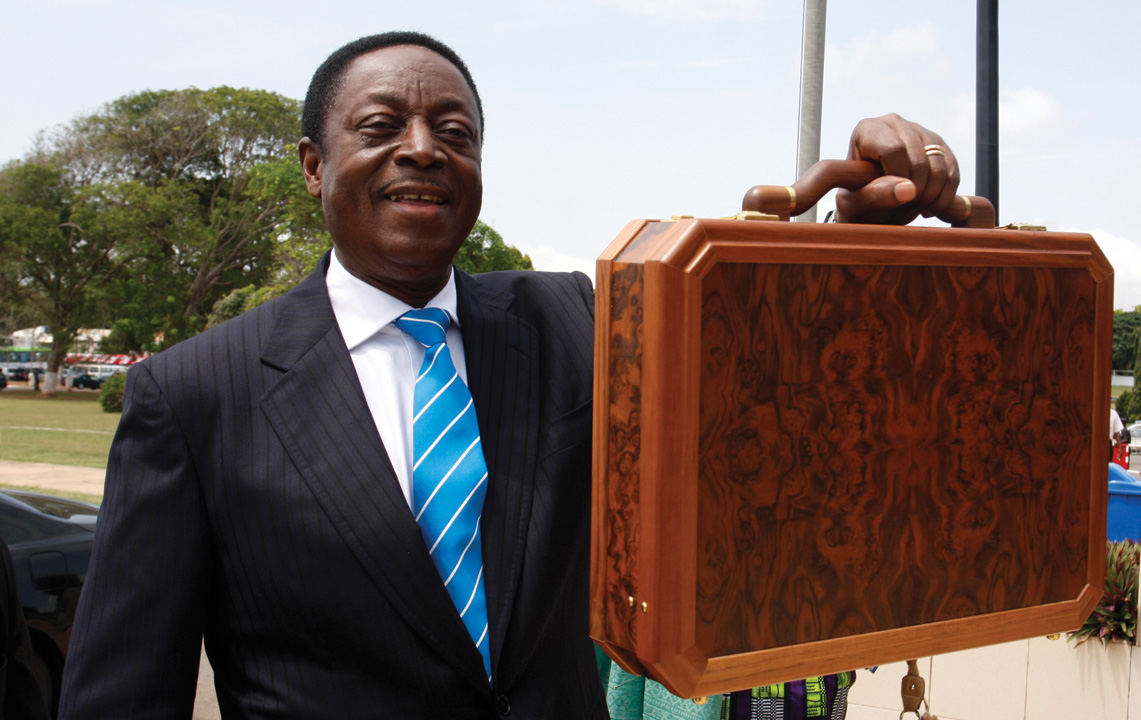Ghana's finance minister plans to spend oil wealth wisely

Oil revenues can be a curse as well as a blessing for an emerging economy. Ghana's finance minister Kwabena Duffuor tells The Banker how he is taking measures to ensure that his country's new oil wealth is spent on securing its long-term economic prosperity.
The great challenge facing Ghana is how to manage its emergence as an oil producer. In theory oil should be a boon for a developing country; in practice many have found it a disruptive influence as the attractions of easy oil revenues take away the imperative for long-term investment in the economy. Ghana’s officials need only look to the fellow west African state of Nigeria for examples of what can go wrong.
So far Ghana, which is producing about 120,000 barrels of oil per day from its offshore Jubilee field, has made a good start. Under the stewardship of finance minister Kwabena Duffuor, the government has been getting its budget and macroeconomic house in order so there is a solid framework in place as the oil revenues start to flow. The budget deficit has been reduced from 15% during the financial crisis to less than 10%, with plans to halve it again over the next two years. Inflation that peaked at more than 20% in June 2009 is now in single figures, despite pressures from rising oil and transport costs, and an oil fund has been established to make best use of oil revenues.
Achievements
In recognition of these initiatives, The Banker made Mr Duffuor our 2011 Finance Minister of the Year for Africa and a presentation was held for him at the Ghana High Commission in London in March. High commissioner Kwaku Danso-Boafo hosted the ceremony.
In a short interview, Mr Duffuor discussed the latest stage of government reforms, the prospects for cocoa production in the light of the production problems in conflict-ravaged Côte d'Ivoire, the development of a hedging mechanism to smooth out oil prices and a statistical reassessment of the Ghanaian economy that makes it 50% larger and takes it from a low- to a middle-income country.
“Since 2009 we have been trying to manage the deficit, which has meant looking mainly at the expenditure side," says Mr Duffuor. "Now we have started to look at the revenue side as well because we cannot only cut expenditure, we must also grow. So in 2011 we are focusing on revenue and there are about 20 measures in the budget for 2011 that are being put in place to grow revenue. The aim is to improve the cash flow of government and to improve the administrative system. That is the main focus for this year.
“When [this government] came to power cocoa was of course doing well but we thought that because we are going to have oil revenues we would have to be very careful about what will happen to the country. So we started looking at the prospects for non-oil revenues.”
Returning to the land
Mr Duffuor says that the outlook for these industries is currently very good as there have been two big jumps in cocoa prices and cocoa farmers are earning more than ever before. “Some of those who abandoned their farms are going back to [them], and young people are staying and doing cocoa farming rather than migrating to the cities. We want to have 1 million metric tonnes output [of cocoa] by 2012 and we are getting close to that.
“With oil we have just started exporting and a year ago I managed to put in place a hedging mechanism to hedge the price of petroleum for consumers. It’s not very sophisticated, just a plain vanilla mechanism to provide stability for the consumer.”
With gross domestic product (GDP) revised to a level 50% higher than previously, there were fears that this could change the country’s status for receiving aid, as Ghana is now in the middle-income category.
Mr Duffuor says: "Our GDP is 50% to 60% higher than it used to be, and that has brought us into the middle-income level at the lower level, but there are still social challenges. The realities are still there. Last September we had a consultative group meeting with the donors and everyone agreed that, although we have moved into the middle-income category, they were still prepared to work with us and there will be a transitional period for concession facilities for five to 10 years.
“Fifty per cent of the economy is in services, which is high [for an emerging market] and it means the middle class is growing.”


